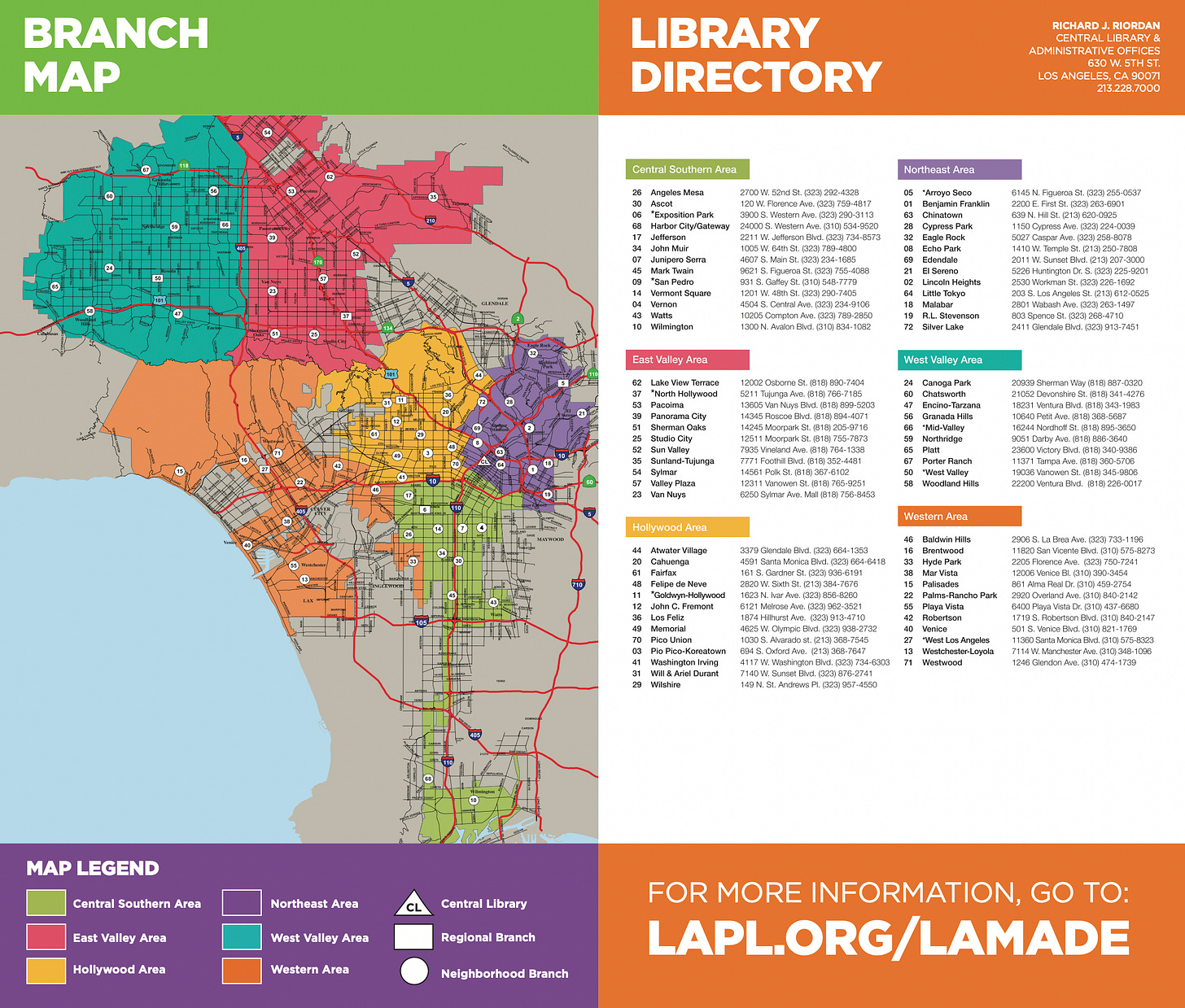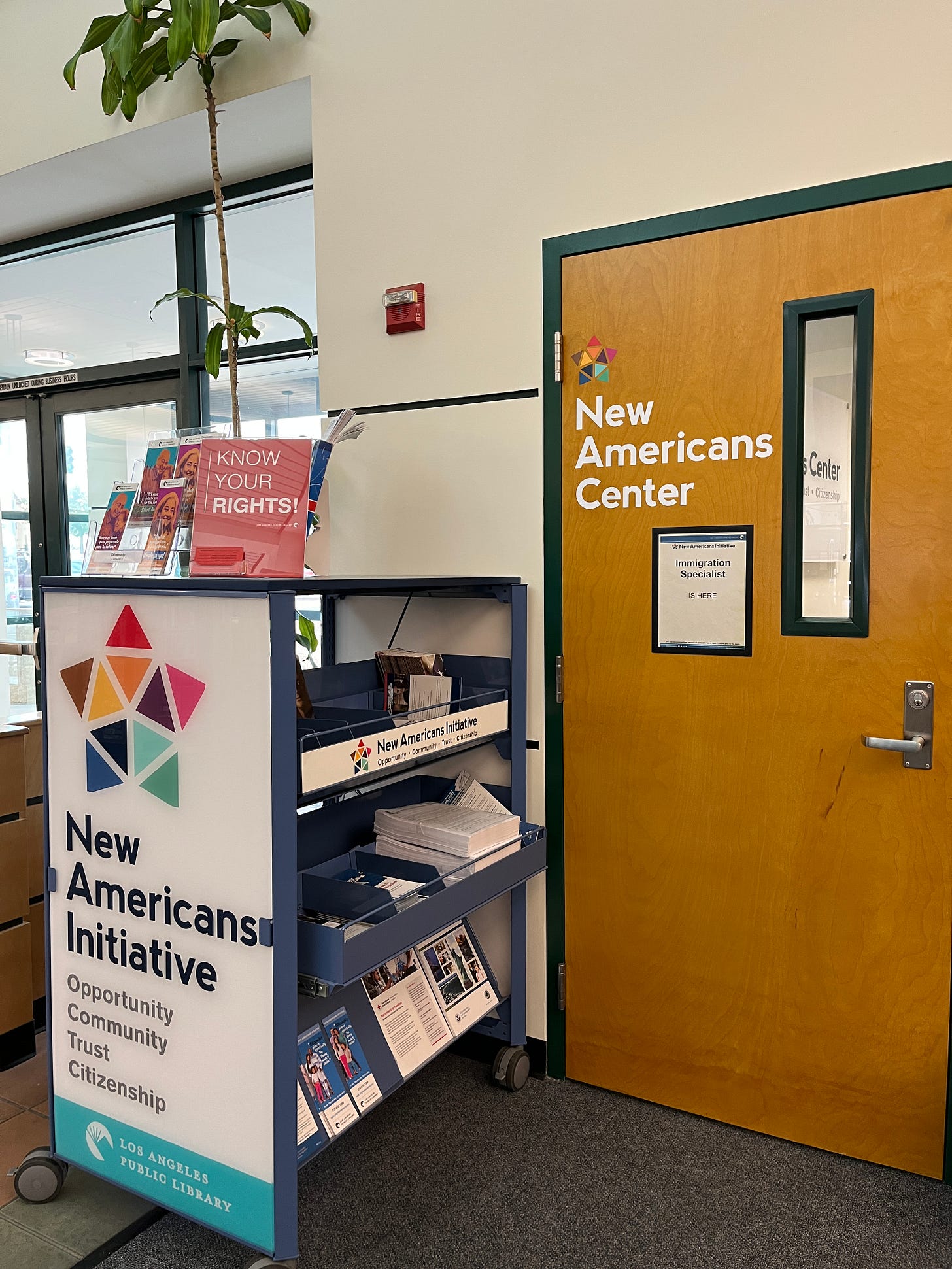"The International Setting Allowed More Innovative Conversations"
Los Angeles Public Library's Madeleine Ildefonso says that participation in an international library leaders' program gave her new tools for partnerships.
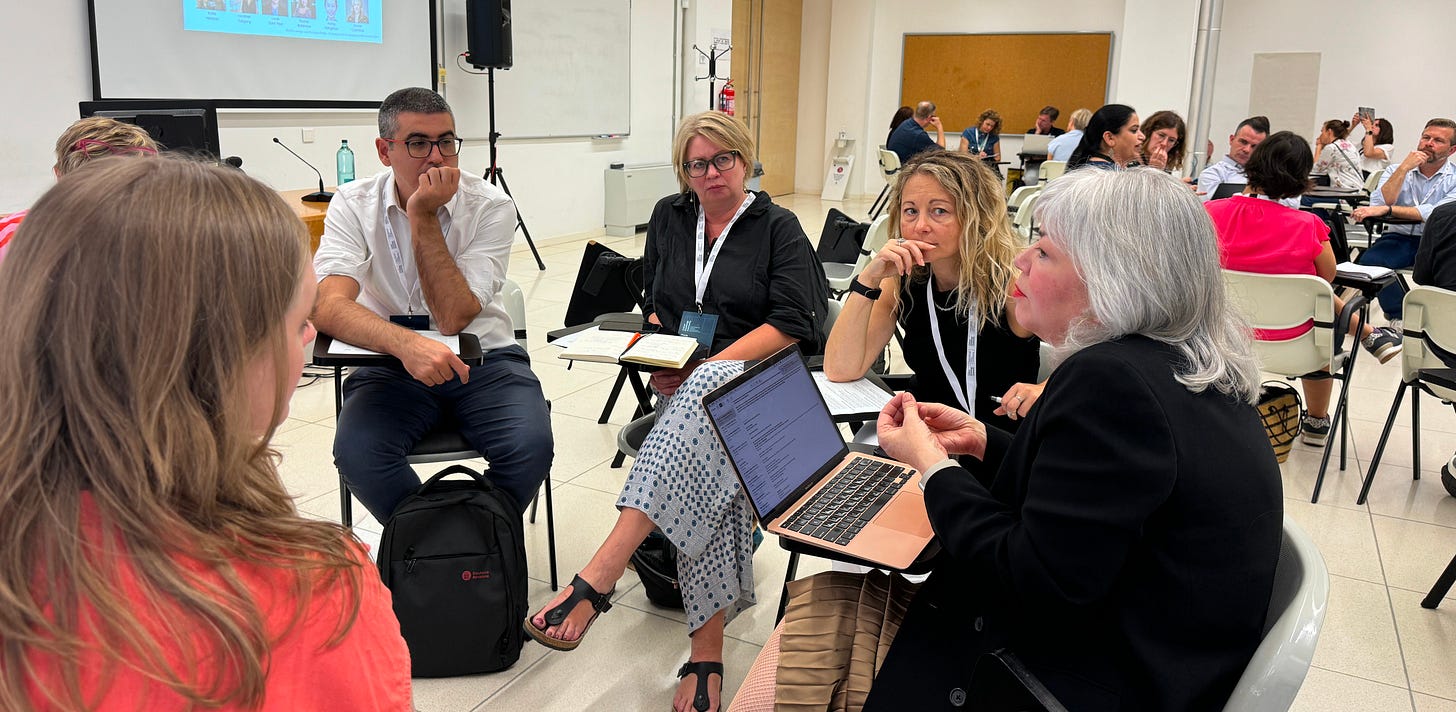
MetLib Learning Circle is a 12-month talent development program I facilitate that was developed together with the IFLA Metropolitan Libraries Section. The program is designed for library leaders from libraries serving urban areas with populations of more than 400,000.
Each annual cohort has 15-20 leaders. The second cohort included 18 leaders from 18 different library systems in 8 countries on 3 continents. Madeleine Ildefonso from Los Angeles Public Library was one of the participants. I talked to Madeleine about her experience.
Tommi: Could we start by introducing yourself and describing your role at the Los Angeles Public Library?
Madeleine: I'm the Managing Librarian of the Office of Civics and Community Services. A significant part of my work is the New Americans Initiative, though our office does much more. We operate VITA tax services, health clinics, financial service workshops and even street vendor resource fairs. A lot of our work is built through collaborate partnerships with nonprofits and community-based organizations to bring essential services and resources to Angelenos.
Tommi: Why did you want to join the MetLib Learning Circle?
Madeleine: Working in any institution can sometimes feel like an "echo chamber" where you get stuck in certain loops. This was an opportunity to be exposed to other library systems, mentors, and perspectives.
Tommi: How did this experience differ from your previous professional network experiences?
Madeleine: As someone who has done highly specialized, non-traditional library work for almost 10 years, there are only a few libraries that operate similar programs at the scale we are able to in Los Angeles. This can limit the types of conversations in terms of advancing the work. Many countries outside of the United States are also providing welcoming services and programs for immigrants and refugees, and I was excited to learn these resources and how they are implemented. The international setting allowed for more innovative conversations in that solutions and new approach thoughts arise in working through some cultural norms and operational lenses that vary country to country.
I've participated in various leadership and mentorship opportunities over the years and most have been project-based. While a proposed project was still involved in this work, it became more about higher level problem solving.
Tommi: What are some of the takeaways from the Learning Circle to your work in Los Angeles?
Madeleine: I learned a lot for instance from leaders from Cleveland Public Library, Calgary Public Library and Toronto Public on partnerships. Toronto introduced a critical vocabulary for defining partnerships. I did already understand this, but haven't encountered the professional vocabulary around the differences before. They are examining their many types of partnerships and what those partnerships mean for the institution.: is it a transactional partnership? Or, is it a strategic or a thought partner? This approach moves beyond bureaucratic agreements to understanding the real nature of the relationship between two institutions. I also loved Cleveland Public Library’s workc around annual partnership audits.
It still makes me laugh when I think about a colleague from Europe who was aghast by our level of attention toward risk management. We are so used to operating in a space which requires a lot of attention to this, it is interesting to hear from institutions who challenge our norms by simply doing things differently.
Tommi: You participated also in the in-person meeting in Barcelona. What was the most valuable aspect of meeting colleagues in person?
Madeleine: Just being able to have dinner, to have casual conversation, in addition to formal conversation at the conference, allows you to have a stronger basis to ask really pointed and difficult questions. It's just those moments that you can't plan where you're just sharing some basics about yourself or your work and suddenly you have an answer to a problem that you thought about two years ago because somebody else is talking about it and it's present in their lives. The opportunities for relationship building that come up from "hallway conversations" or the ability to participate conversations that are generated by others is invaluable. I don't think virtual meetings are able to truly capture the nuance of person-to-person interactions.
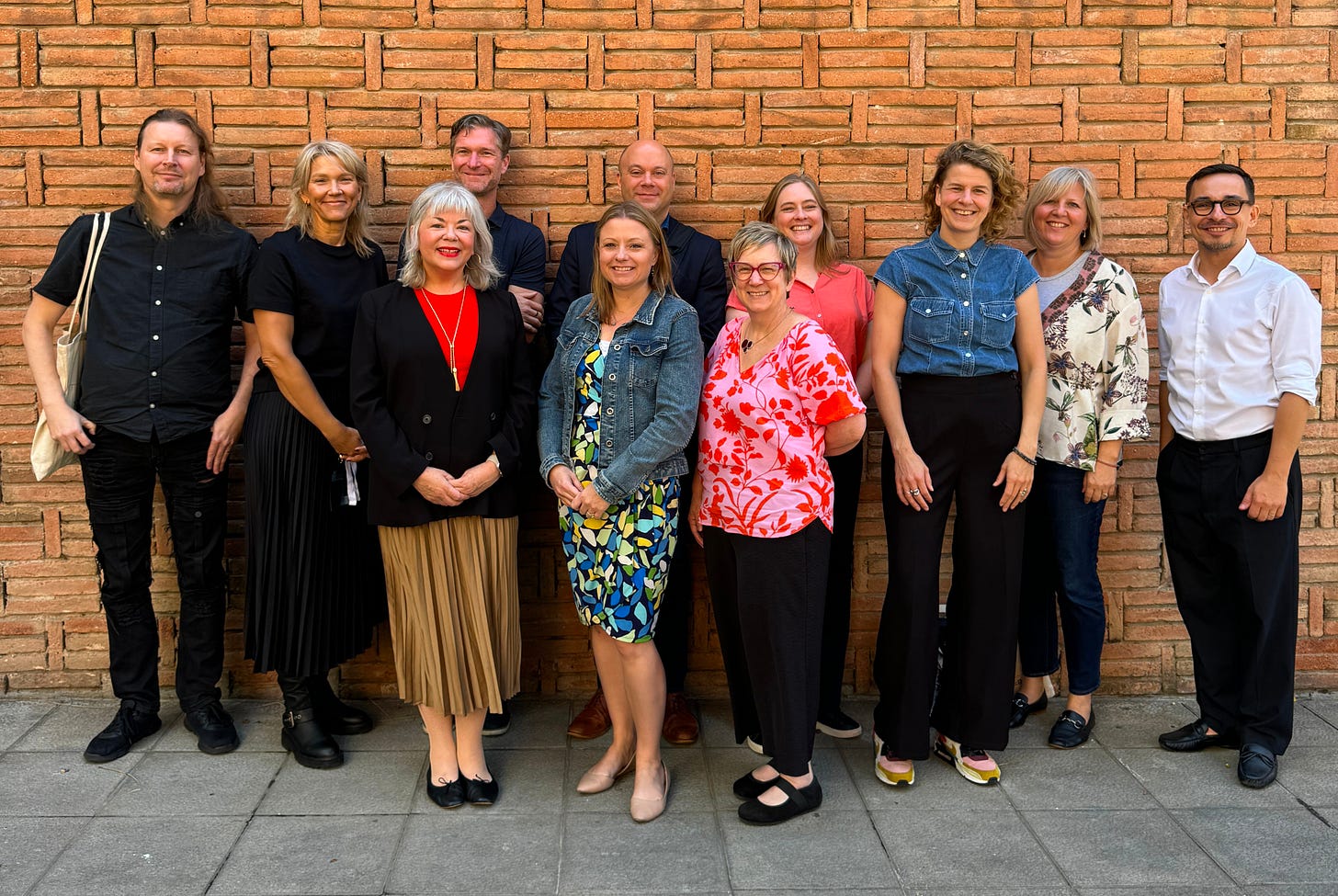
Tommi: I think you are describing convivencia.
Madeleine: Yes! After the conference, I felt the Barcelona crew was so much more connected. Some participants were more subdued in a digital setting. Meeting them in person changed my understanding of who they are and what they were hoping to learn, too. I feel like it was much easier to communicate with the group post-Barcelona, and I was able to learn more from the people with whom I'd built relationships with once we returned to Zoom. Two of our group members who sat in a bus for two hours talking about different styles of metal bands.. Like, who would have guessed that that they were both metal fans. It's about creating genuine relationships that go beyond formal presentations.
Tommi: What do you think you need to take into account when working in an international group?
Madeleine: I think I listened more deeply because the English is more formal, and can be less conversational. Libraries are run really differently globally. I think it's interesting to understand what context people are working in and how that informs their decisions. Operational process for libraries in China is very different than in the Netherlands or here in the US. It would have been actually great to try understand these differences with more contextthose things so we know why a colleague is focused on resolving a particular problem.
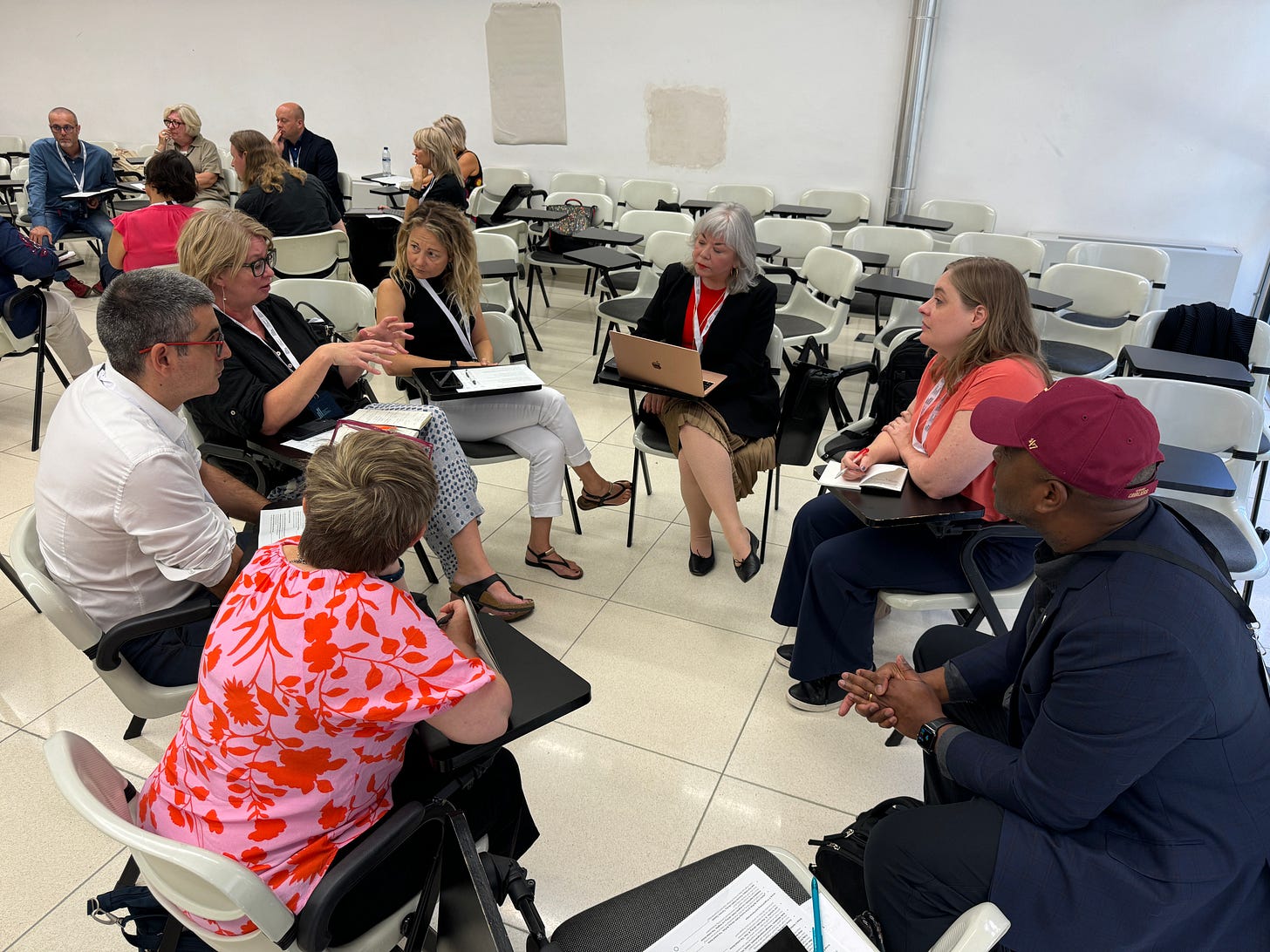
Join!
The applications for the third cohort of the MetLib Learning Circle are due by 28 March. The third cohort is facilitated by me and Library Director Marie Oestergaard (Aarhus Public Libraries). The third cohort of the program runs from May 2025 to April 2026. The program consists of monthly online convenings of 90 minutes and a conference in Toronto, Canada in October 2025 where the participants have a chance to share their projects with and seek advice from colleagues from around the world.
If you are a library leader and this would fit your profile, I would encourage you to apply. If you know a library leader who would benefit from this, pass this forward.





